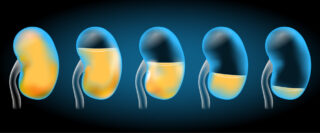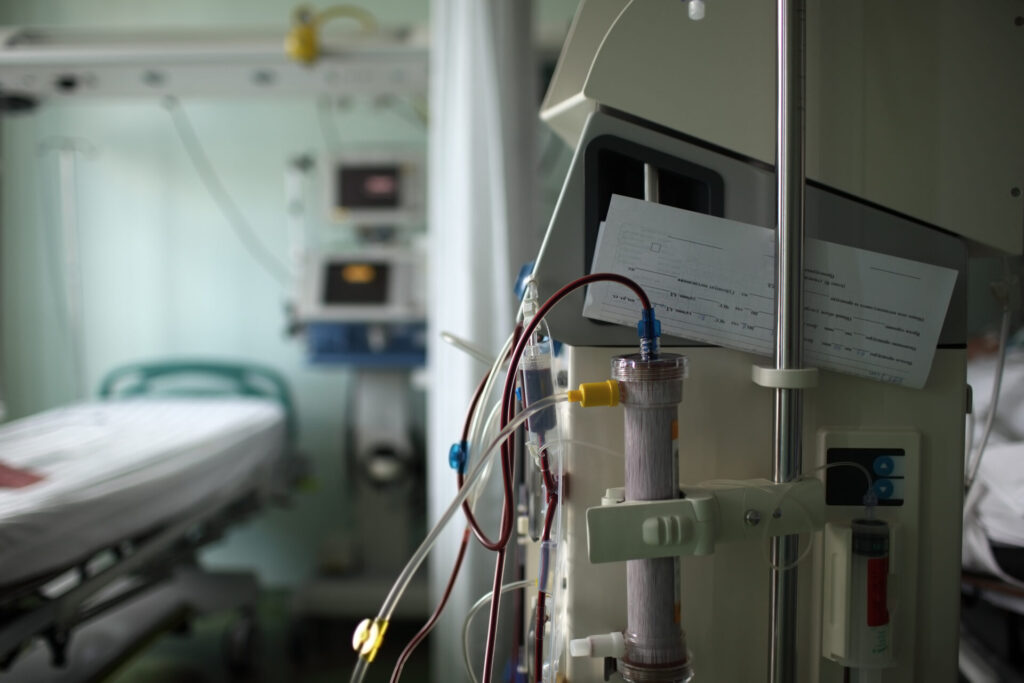
More Chronic Illness Articles
Early Detection Matters: Exploring The Stages Of Chronic Kidney Disease

Chronic Kidney Disease (CKD) is a progressive condition that affects millions worldwide. Its impact on health can be profound, making early detection and management crucial. This comprehensive guide explores the various stages of CKD, emphasizing the importance of understanding and addressing this silent yet potentially devastating disease.
Understanding The Basics Of Kidney Function
To grasp the implications of CKD, it’s essential to first understand the kidneys’ role. These bean-shaped organs, located just below the ribcage, are vital for filtering waste, balancing electrolytes, and regulating blood pressure. When they malfunction, the consequences can be severe, affecting various body systems.
Recognizing Early Warning Signs
Early stages of CKD often go unnoticed because symptoms can be subtle or non-existent. However, recognizing early warning signs like fatigue, swelling, and changes in urination can be life-saving. By being aware of these symptoms, you’re better equipped to seek timely medical advice.
The Journey Through CKD Stages
Chronic Kidney Disease progresses through several stages, each with its challenges and management strategies. It’s important to understand these stages to prepare for the journey ahead.
Stage 1: The Silent Phase
In stage 1, kidney function is normal or only slightly impaired, and symptoms are typically absent. This stage often goes undetected unless specific tests are conducted for another reason.
Stage 2: Mild Loss Of Kidney Function
Here, the decline in kidney function is still mild, and symptoms remain rare. However, regular monitoring is crucial to prevent progression.
Stage 3: The Critical Middle Stage
Chronic kidney disease stage 3 marks a critical point. At this stage, the kidneys have moderately reduced function. This reduction can lead to more noticeable symptoms, such as decreased energy levels or changes in how the body processes waste. It’s a pivotal time for intervention to slow the disease’s progression.
Stage 4: Severe Damage
In this advanced stage, kidney damage is severe, and the risk of kidney failure increases significantly. Medical intervention becomes more intensive to manage symptoms and prevent further decline.

Approaching The End Stage
End stage kidney disease, the final phase of CKD, is a critical condition where the kidneys have lost nearly all their function. At this point, treatment options like dialysis or a kidney transplant become necessary to sustain life.
Lifestyle Adjustments For Better Kidney Health
Adopting a kidney-friendly lifestyle is a cornerstone in managing chronic kidney disease at any stage. This proactive approach involves several key components:
- Emphasizing A Balanced Diet
A balanced diet plays a critical role in kidney health. It typically involves reducing sodium intake to lower blood pressure, limiting protein to decrease kidney workload, and controlling potassium and phosphorus levels to prevent their accumulation in the body. Consulting with a dietitian can provide tailored dietary advice, ensuring that nutritional needs are met without overburdening the kidneys.
- The Importance Of Hydration
Staying well-hydrated helps the kidneys filter waste more effectively. Still, it’s essential to balance fluid intake, especially in the later stages of CKD, where excessive water can be harmful. The right amount of hydration depends on individual circumstances and should be discussed with a healthcare provider.
- Regular Exercise: A Key Factor
Regular physical activity is beneficial in controlling blood pressure, reducing the risk of heart disease, and maintaining a healthy weight, all of which are crucial for patients with CKD. Activities like walking, cycling, and swimming are often recommended. Still, it’s important to choose enjoyable and suitable exercises for one’s fitness level.
- Managing Underlying Conditions
Controlling conditions such as diabetes and hypertension is vital in slowing the progression of CKD. This may involve medication, dietary changes, and regular blood sugar and blood pressure monitoring. Effectively managing these conditions can significantly reduce the risk of further kidney damage.
The Role Of Regular Check-Ups
Regular medical check-ups are indispensable in the early detection and ongoing management of CKD. These check-ups typically involve several key aspects:
- Monitoring Kidney Function
Regular blood and urine tests are used to monitor kidney function. These tests help assess the kidneys’ ability to filter waste and maintain the balance of substances in the blood. Changes in these parameters can indicate progression or improvement in kidney health.
- Adjusting Treatment As Needed
Regular check-ups allow healthcare providers to adjust treatments based on the current state of the kidneys. This may include changing medications, altering dietary recommendations, or implementing new management strategies.
- Early Detection Of Complications
Routine check-ups can also help in the early detection of CKD-associated complications, such as anemia, bone disease, or cardiovascular issues, enabling timely intervention.
Navigating Treatment Options
As CKD progresses, treatment strategies evolve to address the changing needs of the patient:
- Medications To Manage Symptoms
In the initial stages, medications may be prescribed to control symptoms and slow disease progression. These might include blood pressure medications, diuretics, and medications to manage cholesterol levels.
- Advanced Therapies For Later Stages
In more advanced stages, treatment options become more complex. These may include interventions to manage complications like anemia or bone disorders. Eventually, treatment for end-stage kidney disease might involve dialysis or kidney transplantation.
- Understanding Each Treatment Option
Patients need to understand each treatment option’s purpose, benefits, and potential side effects. This knowledge enables informed decision-making and collaboration with healthcare providers.
Conclusion
Chronic kidney disease is a journey that requires awareness, timely intervention, and consistent care. It is vital to understand its stages, from early detection to managing end-stage kidney disease. Through informed choices and proactive management, living with CKD can be a journey marked not just by challenges but also by resilience and hope. Remember, early detection matters, and your journey through CKD is not one you have to walk alone.

















